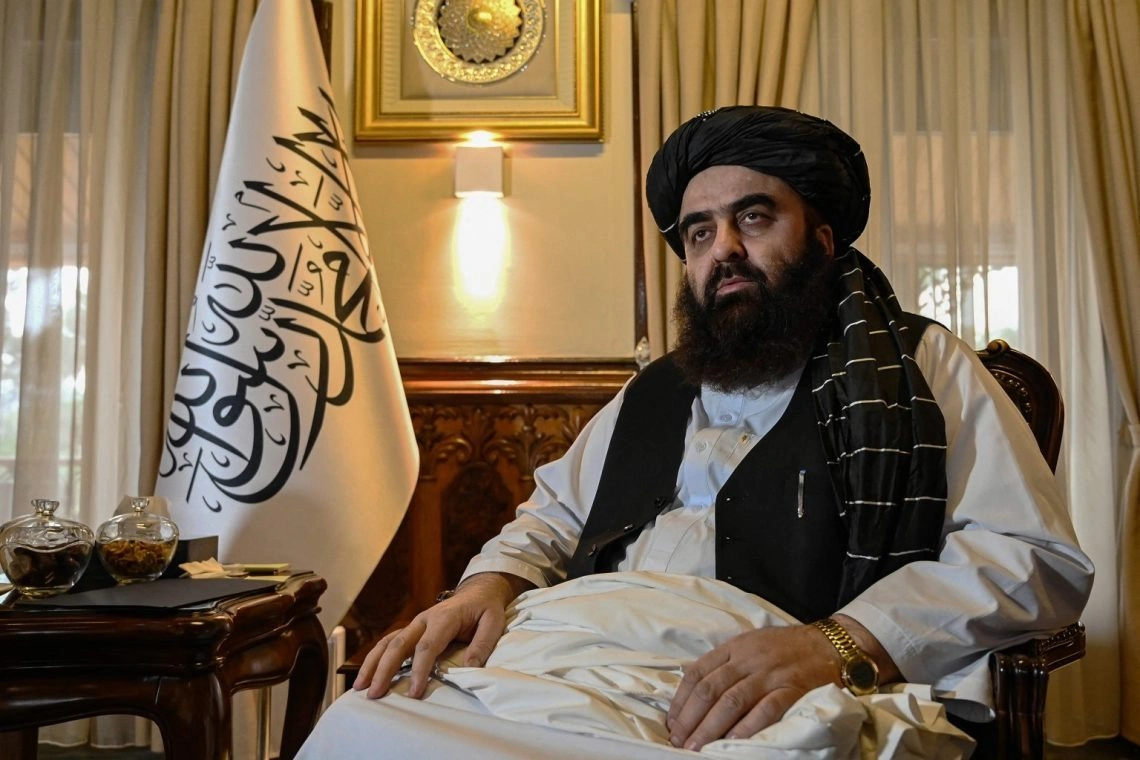UN Committee’s Rejection of IAG Foreign Minister’s Travel Request to Pakistan Is a Positive Step?

UN Committee’s Rejection of IAG Foreign Minister’s Travel Request to Pakistan Is a Positive Step?
A regional dialogue suspended due to UN sanctions on Amir Khan Muttaqi, Foreign Minister of Afghanistan. The UN Committee recently imposed a travel ban on Muttaqi being part of the Taliban government. As the Taliban are not internationally recognized. Under UN Security Council Resolution 2255, Muttaqi is restricted from international travel while the decision delineates the global stance on international norms and counter-terrorism measures. Notably, Muttaqi was allowed to participate in peace talks through engagement. However, hampering this particular visit will impact regional stability. The region is highly fragile and needs diplomatic engagement to maintain peace and stability in the region. Since Afghanistan is a crucial and active regional participant, Muttaqi’s participation in regional dialogue is important. Therefore, such enforcement of UN sanctions on Foreign Minister of Afghanistan could challenge regional prosperity.

UN Sanctions and the Case of Amir Khan Muttaqi: Balancing Compliance with Diplomatic Engagement
On 22 December 2015, UN Security Council 759 meeting reaffirmed travel bans. Security Council Resolution 2255 plays a major role in the enforcement of international norms and target measures such as asset freezes, arms embargo, and travel bans. These sanctions enforce individuals and entities to comply with the global standards.
Therefore, the sanctions on Muttaqi forced the Afghan government to comply with international norms since the Taliban government is accused of violation of human rights.
However, the committee has also travelled exempted Muttaqi previously, such as in May 2023 to visit Pakistan in regional dialogue involving China and Russia. It reflects a pragmatic approach toward regional diplomacy.

The Latest Travel Request and Its Rejection:
Since Afghanistan is a major player in regional concerns, the interim government has requested the UN to remove the travel ban on foreign minister of the Taliban. As, it’s necessary that he may be a part of talks which aimed at peace talks, border coordination, and refugee issues in Pakistan this time. However, the UN sanctions committee has rejected the request to Kabul. Reportedly, the UN has opposed the request of Afghanistan to get involved with the peace talks with Pakistan. Despite the UN rejection, Pakistan has supported the visit of Muttaqi. The visit of Muttaqi seems very crucial in the regional matters of stability.
Why Rejection Matters?
Diplomacy is a core component of regional politics and the government of Afghanistan. The travel ban on Muttaqi possesses a significant implication. It has hampered Taliban’s foreign officials to foster diplomatic links with regional players including Pakistan and China, which are the major determinants of regional stability. However, the visit of Muttaqi was intended to develop confidence building measures and talks on many sensitive issues in the region. The travel ban on Muttaqi may hamper peace process and stability in the already fragile region. Moreover, this trip could help to ensure various humanitarian concerns in neighboring countries.
After the Taliban takeover in August 2021, the UN provided a temporary travel ban waiver. However, notably, in May 2023, Muttaqi was allowed to travel in various countries, including Pakistan. Moreover, he also participated in trilateral talks involving Pakistan, China, and Afghanistan. Similarly, in March 2022, Taliban foreign minister meeting of Afghanistan was held in China. Further, Taliban visited Doha, Qatar in 2021 and 2022. This precedent, travel waivers, who were also part of diplomatic flexibility, are aligned with goals like peace and humanitarian access.
Pakistan’s Position:
After the takeover of the Afghan Taliban, the relations between Kabul and Islamabad have worsened. Pakistan seeks stability between both neighbors Afghanistan and Pakistan. The visit of Muttaqi to Islamabad is an important factor to strengthen the relations between Afghanistan and Pakistan. This trip is strategically important for Pakistan. So, Pakistan has supported the visit of Muttaqi to Islamabad. This trip could pay the ways to establish confidence building measures. Further, the trip of Muttaqi led both neighbors to successfully address the security threats, particularly growing terrorism in Pakistan. Therefore, the travel bans on foreign minister of Afghanistan further complicate the management of many issues such as cross border threats and refugee crisis.
Way Forward
The decision of the travel bans and underscoring commitment to accountability is destroying the norms of diplomacy. The UN should revisit the approach of travel bans because such approaches compromise the aim of peace building in the world. Moreover, the international community must create a structured, conditional waiver system for peace diplomacy efforts. So, a balanced approach is highly needed and sanction enforcement with peace engagement to establish long term regional stability.
Disclaimer:
The views and opinions expressed in this article are exclusively those of the author and do not reflect the official stance, policies, or perspectives of the Platform.












